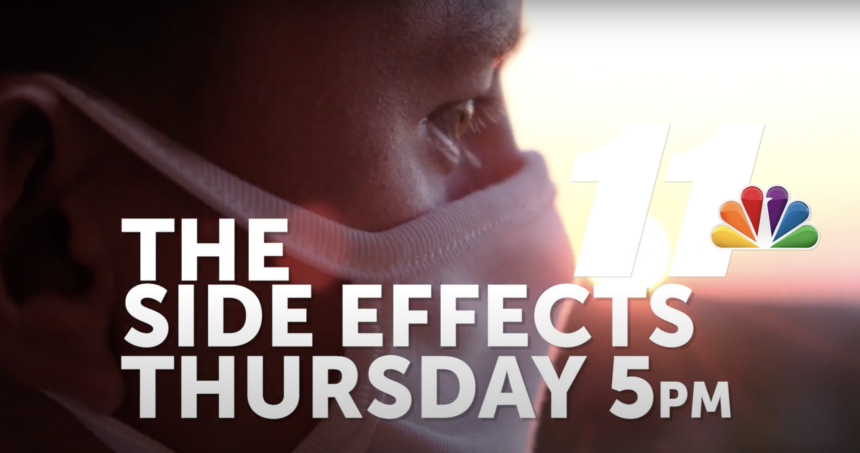SPECIAL REPORT: Exploring the side effects of COVID-19

YUMA, Ariz., (KYMA, KECY) - The current Coronavirus crisis has shown little signs of slowing down as we head into 2021. Some health experts calling Arizona "The Hotspot of the World" and nearby in California some hospitals at 200% over-capacity.
For those who contracted COVID-19, it's the side effects that come with the virus, that separate it from any other contagious strain the world has seen. One of those, including loss of taste and smell.
"The weird thing with taste was my tongue went numb, like if I burned it on a hot cup of coffee or something," said Russ.
With a generally mild case of COVID-19, 23-year-old Brandon Russ, has thankfully recovered since his October diagnosis. But he says it's his sense of smell and taste that still give him trouble post-covid.
“I’ve had the flu before so I knew what to expect, but when you lose your taste that’s tough because you don’t want to eat, everything tastes weird and you’re basically just having texture,” explained Russ.
Brandon is not alone. A study published in the Journal of Internal Medicine found that 86% of patients with mild forms of Coronavirus developed loss of smell and taste compared to the 4 to 7% of those with moderate to severe cases.
The same study said it took an average of 22 days for the patients to recover their sense of smell, but nearly a quarter said it took up to 60 days.
“Recovery has been slow, but I’ve seen people, virtually all people, fully recover eventually the sense of taste and smell,” said Bronniman.
Dr. Scott Bronniman, a Pulmonologist with Yuma Regional Medical Center said the outbreak of the Coronavirus has been unlike anything he's ever seen throughout his medical career.
“The only thing comparable was about in 2005 there was the SARS virus, Severe Acute Respiratory Syndrome, and it was a relative of this current virus. It was not nearly as contagious so it was much more limited in scope. Some of our worry that the damage to the lungs from COVID-19 may be long lasting is our experience with the SARS virus," stated Bronniman.
For some patients, it's the uncertainty that is frustrating. Especially not knowing when their sense of smell and taste will come back, if ever.
“Honestly you know I was probably just being dramatic but I was worried like what if my sense of taste never comes back? I like to eat. This could ruin everything,” said Russ.
Asides from loss of smell and taste, long-term damage to the lungs has left physicians worried if that could be a permanent side effect as well. The local patients Dr. Bronniman has seen with significant lung damage were patients who initially had severe pneunonia and/or underlying health conditions.
However, for the patients with a loss of sensory functions the desperate need to regain it back has led to experimenting with smell training.
Doctors say there's no actual guarantee that the nerves associated with smell and taste will get back to norma. On the other hand, even if a once loved food or drink remotely starts to taste the same, it could be a step in the right direction.
With the recent announcements of the COVID-19 vaccine, there is light at the end of the tunnel for our lives to slowly get back to normal.
“I’m so optimistic about that ultimate answer being the vaccine. Mass vaccinations which seems to now really be getting going. Not sure how long that protection will last. But it’s the beginning," explained Bronniman.
"You know I do feel better about COVID-19 moving forward," said Russ.
For more information on Coronavirus and where you can get tested locally visit our 'Coronavirus in the Desert Southwest' page here.
